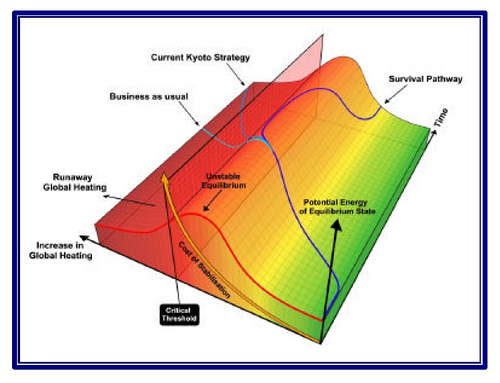Difference between revisions of "Climate Portal"
(reformatted getting started section) |
|||
| Line 8: | Line 8: | ||
<table><tr><td width="75%"> | <table><tr><td width="75%"> | ||
| − | + | The Climate Portal is dedicated to exposing and reporting on the spin and lobbying efforts concerning climate change, global warming and other climate-related topics. The Climate Portal is part of [[Powerbase:About|Powerbase]]—your guide to networks of power, lobbying and deceptive PR. | |
| − | + | You can explore pages on climate sceptics, greenwash, government bodies, corporate climate change lobbies and much more, using the categories in the righthand column below. | |
'''[http://www.powerbase.info/index.php/Category:Climate Click here for an index of all articles related to the Climate Portal]''' | '''[http://www.powerbase.info/index.php/Category:Climate Click here for an index of all articles related to the Climate Portal]''' | ||
[[Category:Climate]] | [[Category:Climate]] | ||
| Line 16: | Line 16: | ||
Powerbase has a policy of [[Powerbase:A Guide to Referencing|strict referencing]] and is overseen by a [[User:Melissa Jones|managing editor]] and a [[User:David|Sysop]] and several associate portal editors. | Powerbase has a policy of [[Powerbase:A Guide to Referencing|strict referencing]] and is overseen by a [[User:Melissa Jones|managing editor]] and a [[User:David|Sysop]] and several associate portal editors. | ||
| − | Climate change is one of the biggest challenges of our time. The global collaboration and individual and institutional action needed to address | + | Climate change is one of the biggest challenges of our time. The global collaboration and individual and institutional action needed to address its causes and avert the worst of its catastrophic effects are unprecedented. Nonetheless, as the consensus of climate scientists demands tougher targets and emissions cuts, political failure to meet these challenges is becoming ever more acute. |
| − | Meanwhile, polluting high carbon industries have adapted to heightened environmental awareness by portraying themselves as part of the solution, as | + | Meanwhile, polluting high carbon industries have adapted to heightened environmental awareness by portraying themselves as part of the solution, as opposed to the problem. While some environmental gains have been made, [http://stopgreenwash.org/ 'greenwash'] (unjustified green claims or spin) has become an industry in itself. The complexities of climate science, climate policy and climate change solutions, coupled with confusion over which green claims to believe, have led to misguided programs and policies, and public disillusionment. |
| − | The Climate Portal aims to provide academics, analysts, campaigners, researchers and all other interested parties with up-to-date and rigorous information on some of the main debates, technologies, industries, lobby groups, public bodies and policies in the area of climate change in the UK. We | + | The Climate Portal aims to provide academics, analysts, campaigners, researchers and all other interested parties with up-to-date and rigorous information on some of the main debates, technologies, industries, lobby groups, public bodies and policies in the area of climate change in the UK. We will investigate and de-mystify corporate or political 'greenwash' and examine the activities and connections of key players in the climate change debate. |
The portal particularly focuses on [http://www.powerbase.info/index.php/Category:Climate Change Sceptics climate change scepticism] , corporate greenwash, the [http://www.powerbase.info/index.php/Category:Climate: Energy Industry energy industry]] and [http://www.powerbase.info/index.php/Category:Climate: Industry Lobby Groups industry lobby groups], and the connections between government and industry. | The portal particularly focuses on [http://www.powerbase.info/index.php/Category:Climate Change Sceptics climate change scepticism] , corporate greenwash, the [http://www.powerbase.info/index.php/Category:Climate: Energy Industry energy industry]] and [http://www.powerbase.info/index.php/Category:Climate: Industry Lobby Groups industry lobby groups], and the connections between government and industry. | ||
Revision as of 13:27, 8 July 2010
Welcome to the Climate Portal on Powerbase | |||
|---|---|---|---|
|
|
|
| ||||||||
References
|

